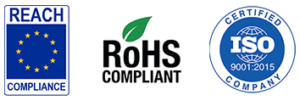EPOXIBOND EB-331T is a two component, room temperature curing, thixotropic paste adhesive of high strength with good environmental and excellent chemical resistance. After 3-4 hours, EB-331T reaches handling strength and can be moved for processing purposes. Used for bonding of metals, electronic components, GRP structures and many other items where a higher than normal temperature or more aggressive environment is to be encountered in service. The low out gassing makes…
rob_bdcSeptember 14, 2015


